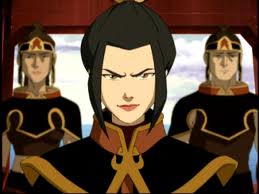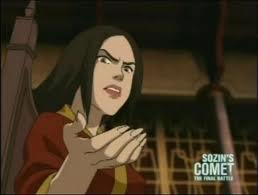Have you ever come across the word “feminist” or “feminism” in context that just doesn’t make sense? It’s a word that seems to have been coated in a thick layer of dirt in the past couple of decades, covering up the true meaning with a nasty overcoat. Something that means equality has been mutated into a fowl word, the thing you won’t call even your worst enemy, something that twists the young and innocent. Just take Rush Limbaugh’s lovely mutilation of the word into “feminazi.” Unfortunately, a large group appears to have adopted and internalized this warped sense of the word so, it shouldn’t come as a surprise that misuse of it occurs in fiction at times. After reading soaringwing’s post about a convoluted comment about feminism, I decided to do my own calling out of problematic usage.
Take a look at the image above. This is a scene from Kaori Yuki’s Grand Guignol Orchestra, which follows a small band of very unusual members of an orchestra that cleanse people who have turned into doll-like zombies through a strange virus. In this particular episode, Eles, Lucille, and company have arrived at the mansion of a certain Lord Red-Beryl. The lord is a young man with an apparent obsession over beautiful women. The only reason the orchestra was allowed onto the lord’s premises was because he mistook Lucille for a woman and the only people in sight are all young, beautiful girls who act as his maids, servants, and guards. The group finds out that Lord Red-Beryl has dreams of protecting every woman he can and also of finding a woman he can marry, all for the sake of his mother who had a difficult time after her husband died when their son was only a boy. After discovering all of this, the conversation above about Lord Red-Beryl takes place between Eles and the other orchestra members.
Now, the first problem with this usage of the word “feminist” is that it just doesn’t make sense in this context. Eles says the lord isn’t a feminist, that he simply has a mother complex, but that seems to imply that the lord’s behavior resembled that of a feminist’s in some way. However, before Eles mentions it, feminism did not enter my mind in the slightest while I was reading this section of the manga. If anything, maybe sexism, but certainly not feminism. While Lord Red-Beryl appears to respect his mother, the way he treats other women doesn’t seem like the behavior of someone who sees women as equal to men; I might argue that someone who thinks all women need the protection of a man suggests that women are weaker than men and is, in fact, sexist. When you take into account how Lord Red-Beryl treats the women around him (telling them how to dress, using them as servants which inevitably puts them in a position of considerably less power, and viewing each new (beautiful) girl as someone he could wed for his own benefit), sexist seems the much more likely choice.
As for the second comment about the difference between a leecher (essentially someone who takes from others and gives nothing back) and feminist being paper-thin, that’s just a plain insult. While this could be simply a reflection of the character, because no one denies or contradicts his remark, the idea that feminists are like leechers just sits out there, virtually accepted. Feminist has taken on a negative connotation in this day and age, to the point that even those who believe in equal rights for women won’t call themselves feminists, and this rather random insult in a manga reinforces that connotation. Feminists have been equated to extremists who want more, more, more and women with chips on their shoulder who hate men. If you truly believe that women are equal to men in every society, it may seem that way, but if you look at things like what women get paid in comparison to men who work the same jobs (in the U.S., it’s 77 cents (if you’re a white woman) for every dollar a man makes), the glass ceiling and second shift effect, gender roles and stereotypes, and even more serious issues in certain countries, there are still reasonable issues that feminists are trying to work on. Are there people who call themselves feminist who may be extreme? Probably, but most feminists are average people who see that equality between sexes is still an ongoing process.
Sadly, there are a lot of misconceptions about feminism buzzing about so, if you see any iffy usages of it in fiction and don’t have a blog of your own, please tell me about them so I can call those mistakes out.





